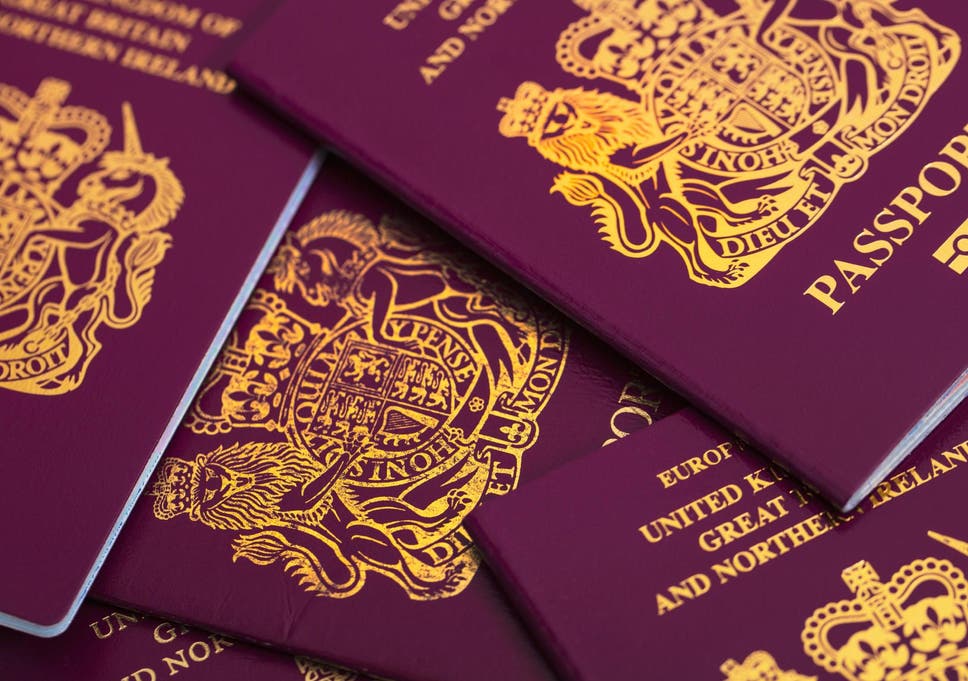
However much you prepare, the completely unexpected can arise when travelling – as I discovered recently at the Qatar Airways check-in desk at Heathrow for a flight to Doha.
I was surprised when the check-in staff examined my passport closely and disappeared with it to show their boss. I typically take flights several times a month and this is the first time my passport has garnered even the remotest interest.
It was photographed and the images forwarded to the Qatari immigration department for them to decide whether I should be allowed to board or not. Because, they explained, my passport was damaged.
Their concern was that the paper had come away a few millimetres from the laminate holding my personal details and photograph, although from looking at it, it was clear that there was no way the photograph or personal details could have been altered or replaced.
My passport is certainly scruffy, but not the UK Government’s definition of a damaged one. It had sailed through many passport control desks.
A damaged passport is officially defined as one that is not “in a condition to be accepted as proof of identity”. This could include an ink spillage on a page, water damage, a hole punch, the chip or antenna showing through the end-paper on the back cover of an e-passport, indecipherable personal details, missing or detached pages, the laminate lifting enough to allow the possibility of photo substitution, discolouration to the bio-data page.
Normal wear and tear is expected and shouldn’t count as damage – but what is deemed “normal”?
Airlines typically say: “We may decide to refuse to carry you or your baggage if the following has happened or we reasonably believe may happen ... you have not, or do not appear to have, valid travel documents.” You would have to take the airline to court to attempt to get compensation and as this is an area where definitions of a damaged passport vary greatly, it would not be straightforward.
I waited at check-in for two hours for my passport to be assessed in Qatar. I was surprised at the torturous process as one of the handling staff told me this issue comes up on every Qatar flight. This was backed up by the fact that two other passengers were held up for the same reason, including another member of my party. With just a few minutes to go before the flight was to leave, they were both allowed to fly and were sped through security. I was not.
“In the case of damaged passports, the rules are almost identical across the world, but the level of stringency varies,” a spokesperson from Qatar Airways told The Independent.
“Qatar errs toward higher stringency, but not as severe as some countries. ‘Damaged’ passports and pleading passengers have been used as cover for illegal entry and activity in some parts of the world. This is well known, so immigration and security staff are very aware of this as a potential ploy and security threat. Considering where Qatar is located, the level of hostility by its immediate neighbours, and armed conflict in the region, expats who live here are generally grateful that Qatar immigration and airport security are aware and vigilant.

“Guidelines for assessing a damaged passport, meaning it isn’t in a condition to be accepted as proof of identity, may include ANY damage to the bio-data page.”
“I pretty much travel full time for work and it shows on my passport,” says travel photographer Miles Holder, who was held up with me. “I have dog-eared pages and some water damage but it has never been an issue in the past. I was surprised they didn’t communicate anything about worn passports on their website because I would have gotten a new one had I known.
“Waiting in line was quite nerve-wracking as was the mad rush to the plane with seconds left until take-off – we ended up being driven there in a buggy and through the staff security lane. I am due a new passport in June anyway, but I am a little nervous about the trips I have planned between now and then.”
Jettisoning this trip was certainly annoying, but it was just a short business trip. Just imagine if I’d blown my savings on a business class seat and luxury holiday, or was travelling with my family, and was then denied boarding.
Despite the inconvenience, I understand why airlines have to be vigilant with this. They are expected to act as immigration authorities and administer a great number of complex regulations, and there are severe financial penalties when they get it wrong. Not only can an airline receive a hefty fine for flying a passenger to a destination with a damaged passport, they would also be required to immediately fly them back, at no charge, potentially taking a seat on a flight that the airline could have sold to a fare-paying passenger.
According to The International Air Transport Association (Iata), around 60,000 passengers are turned back at destination or transfer points by immigration authorities each year. Iata research indicates that one in every 25,000 international passengers boards a flight with the incorrect documentation, which can result in a fine for the airline, although this can include issues other than damage, such as outdated or invalid visas, passports not being valid for long enough, not enough empty pages for visas and not having a return or onward ticket.
Fines given to airlines allowing a passenger to fly with inadequate documentation average $3,500 (£2,780) per passenger.
It’s not just Qatar immigration that has particularly strict guidelines as to what constitutes a damaged passport. There’s no definitive list of countries available, as individual immigration guidelines change all the time, but Heathrow staff said that flights to Thailand and Bali in Indonesia particularly stood out as having this problem.
When the UK leaves the EU, the likelihood of being refused boarding for passport issues within Europe will no doubt increase. And there’s anecdotal evidence on the internet for numerous countries around the world where people have been denied boarding for what they perceived as very minor damage to their passports.
So, dear reader, look after your passport with great care. Check the expiry date. If visas are required, check the number of blank pages available. It’s also a good idea to carry photocopies of all travel documents and upload images of important documents to a cloud drive.
Meanwhile, I’m getting a new passport, and planning to return to Qatar – when I’ll make sure it’s in spotless condition.







